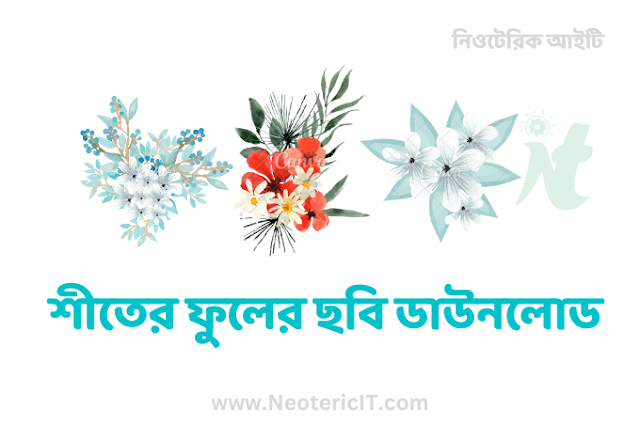21st February Significance and Celebration | International Mother Language Day
Hello dear guest - Welcome to Neoteric IT . You have come to Neoteric IT for information about 21st February Significance and Celebration | International Mother Language Day Today I will conclude this article by discussing 21st February Significance and Celebration | International Mother Language Day in detail. Search Google to know more about 21st February Significance and Celebration | International Mother Language Day write 21st February Significance and Celebration | International Mother Language Day or click here insightflowblog.com for visit. See the page Table of content for know the main topic of this article. Web story and AMP Version
21st February is a significant day in the history of Bangladesh. On this day in 1952 a group of Dhaka University students along with other civilians protested against the imposition of Urdu as the official language of East Pakistan. The protest was met with violence by the authorities, resulting in several deaths. This event gave birth to a movement which eventually recognized Bengali as the official language of Pakistan and eventually independent Bangladesh was born.
21st February Significance and Celebration - 21 february - NeotericIT.com
21st February Significance:
The significance of 21st February lies in the association with the Bengali language and the struggle for recognition of Bengali as the official language. In 1948, the founder of Pakistan, Muhammad Ali Jinnah, announced that Urdu would be the sole official language of Pakistan, a movement to recognize Bengali. This decision faced strong opposition from the people of East Pakistan, who speak the Bengali language.
The movement gained momentum in the early 1950s when students and other civilians took to the streets to demand the recognition of Bengali as the official language. February 21, 1952 was a turning point in the movement, as on this day the authorities resorted to violence to quell the protests. The death of several protestors, including students, sparked the movement and turned it into a mass movement.
The movement continued for several years, with people from all walks of life taking part in protests, strikes and other forms of civil disobedience. The movement finally achieved its goal in 1956, when Bengali was recognized as the official language of Pakistan. This achievement was a significant step towards the independence of Bangladesh.
Language Significance:
Language is a powerful tool of communication and plays an important role in the formation of cultural identity. It is a medium through which people express their thoughts, ideas and emotions. Language is not only a tool of communication but also a repository of a culture's history, literature and art.
The Bengali language, with its rich history and literature, has been an important part of the cultural identity of the people of Bangladesh for centuries. Language has been used to express people's joys and sorrows, hopes and dreams, struggles for freedom and identity.
Also Read: 21st February Status
Language Movement:
The language movement of 1952 was not only a protest against the imposition of Urdu as the official language, but also a struggle to preserve the Bengali language and its cultural identity. The movement was a response to the cultural and linguistic oppression of the Bengali people by the West Pakistanis under the control of the central government.
The movement was started by a group of students who felt that the imposition of Urdu as the official language was an attack on their cultural identity. They organized protests and rallies demanding recognition of Bengali as the official language.
Read more: Poetry recital on 21st February
The authorities responded with violence and the situation quickly turned into a mass movement. The movement was led by a group of intellectuals, including poets, writers and journalists, who used their pens to raise awareness about the importance of language and the need to preserve Bengali as a language of literature, culture and identity.
The movement gained momentum and support from all walks of life including students, workers and professionals. Protesters organized strikes, demonstrations and other forms of civil disobedience, which were met with further violence from the authorities.
Sacrifice of Martyrs:
21st February 1952 was a turning point in the movement. Authorities opened fire on the protesters, killing several, including students. The self-sacrifice of the martyrs strengthened the movement, turning it into a mass movement.
Built in memory of the martyrs of the language movement, Shahid Minar has become a symbol of the struggle to preserve the Bengali language and culture. This monument stands as a memorial to the sacrifices of those who fought for the recognition of Bengali as the official language.
International Mother Language Day:
In recognition of the significance of the Bengali language movement and its contribution to the preservation of linguistic and cultural diversity, UNESCO declared February 21 as International Mother Language Day in 1999.
The day is celebrated around the world as a reminder of the importance of language in promoting peace, cultural diversity and understanding. It is a day to celebrate linguistic and cultural diversity and promote multilingualism and the importance of language in identity formation.
21st February Celebration:
21st February is celebrated as International Mother Language Day in Bangladesh . The day is observed as a public holiday and various programs and events are organized to celebrate the Bengali language and its significance in the history and culture of Bangladesh.
The main event of the day is the Shaheed Minar ceremony, held at the Shaheed Minar, a monument in Dhaka built to commemorate the martyrs of the language movement. The ceremony includes wreath-laying at the memorial and singing of songs in honor of the martyrs.
Other events organized to mark the day include cultural programs, poetry recitals and seminars on the importance of language and its role in shaping national identity. Schools and colleges organize programs and competitions to promote Bengali language among students.
Conclusion:
21st February is a very significant day for the people of Bangladesh. It is a day to remember the sacrifices of those who fought for the recognition of Bengali as the official language and the language and its role in shaping the national identity of Bangladesh. The day serves as a reminder of the importance of language in preserving and promoting culture and the need to nurture and protect our linguistic heritage.
Thanks for read the post. You can also read the article in bangla - 21-february
You are indeed a valued reader of Neoteric IT. Thank you so much for reading 21st February Significance and Celebration | International Mother Language Day article. Please let us know how you feel after reading this article.

 Follow Google News to get the latest Neoteric IT news
Follow Google News to get the latest Neoteric IT news 
.png)





Please comment in accordance with the policy - otherwise your comments will not be accepted.
comment url